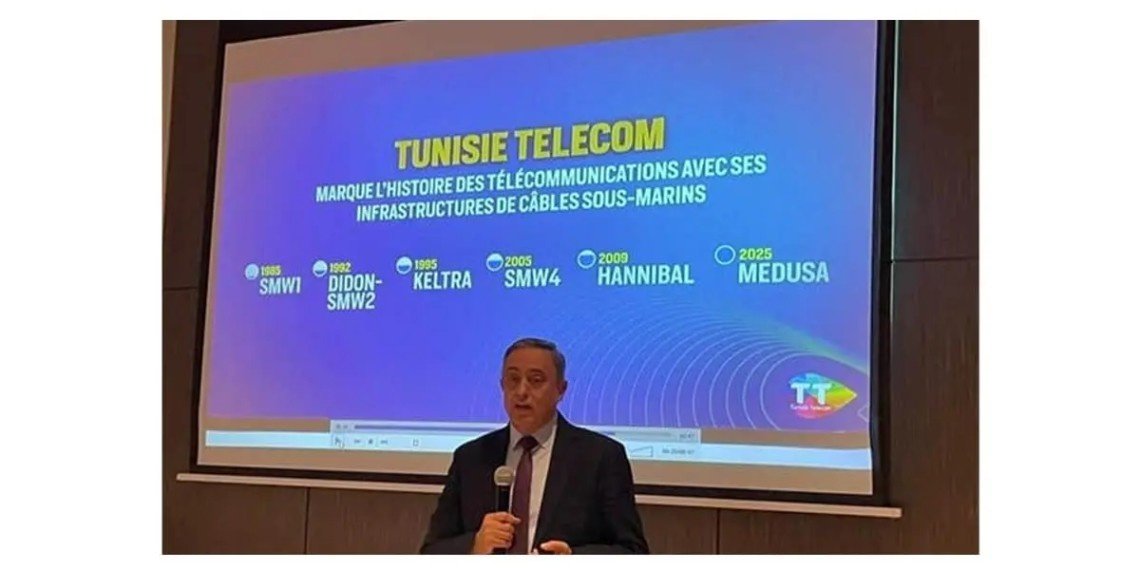Tunis — October 30, 2025:
Carrying over 95% of global Internet traffic, submarine cables form the backbone of international connectivity — and in Tunisia, Tunisie Telecom stands as the guardian of these critical arteries. The operator’s decades-long investments in undersea infrastructure have secured the country’s digital independence, ensuring stable, high-speed connections both domestically and globally.
From Early Milestones to Modern Networks
Tunisia’s journey into global connectivity began with the SEA-ME-WE 1 cable in 1985, linking the country to Europe and Asia through the Mediterranean and marking a turning point in its telecommunications history.
This was followed by SEA-ME-WE 2 (1992), Tunisia’s first direct high-speed connection to Europe and the Middle East, and KELTRA (1995) — the nation’s first fiber optic cable — which laid the foundation for modern digital communication.
Expanding Global Reach
Tunisia’s integration into SEA-ME-WE 4 in 2005 further elevated its role in international telecommunications, providing direct access to major global data centers across Europe and Asia. Four years later, in 2009, Tunisie Telecom launched its own submarine cable, Hannibal, linking Kélibia to Italy. Entirely Tunisian-owned, the Hannibal cable significantly boosted international bandwidth, improving both speed and reliability of Internet access nationwide.
Connecting Communities Across Tunisia
Beyond international connectivity, Tunisie Telecom has also invested in domestic submarine links, including the El Jorf–Djerba cable, which connects the island of Djerba to mainland Tunisia. This project has enhanced network resilience in the southeast and expanded access to digital services in remote regions — a reflection of the company’s mission to make connectivity universal.
The Foundation of Tunisia’s Digital Future
Today, Tunisie Telecom’s integrated network of submarine cables and fiber infrastructure underpins Tunisia’s ongoing digital transformation. These systems power not only high-speed Internet but also support cloud computing, data centers, and critical digital services across education, healthcare, and e-commerce.
Submarine cables, once seen as purely technical assets, now represent the digital sovereignty and economic resilience of Tunisia — a nation positioning itself at the crossroads of global connectivity and innovation.















